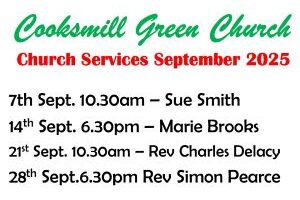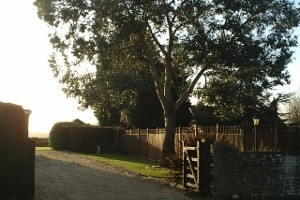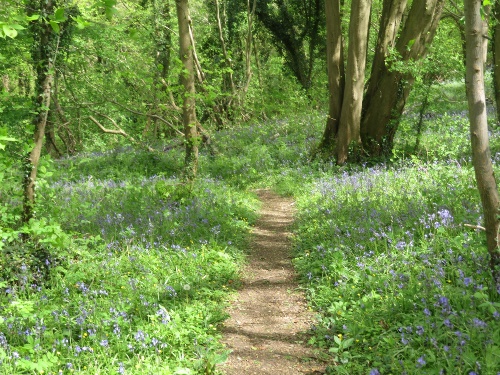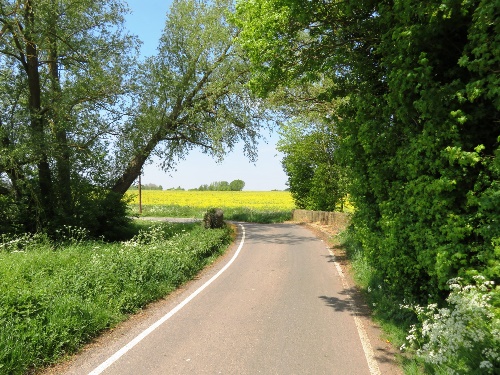THOUGHT FOR THE WEEK – Be prepared 23rd August
When our futures are uncertain (not something exclusive to the current situation) it can be difficult to know how and what to plan for. My Brother once quoted to me the saying ‘If you want to make God laugh, tell Him your plans!’ Yet herein lies one of those paradoxes – at least at first sight. In the Sermon on the Mount Jesus says, “So do not worry about tomorrow, for tomorrow will bring worries of its own. Today’s trouble is enough for today.” (Matthew 6: 34). Does this really mean we just forget about tomorrow and the future and let it take care of itself? I don’t think so. Jesus isn’t saying don’t consider or prepare, he’s saying don’t worry.
While Jesus may have told his disciples not to worry, He also told them to prepare. Primarily the instructions in the gospels involve the coming of the kingdom, or activities Jesus was soon to carry out. The most famous perhaps being ‘Prepare the way of the Lord’ (Isaiah 40:3, Mt 3:3, Mk 1:3, Lk 3:4). The folly of not be prepared is played out graphically in ‘The Parable of the Ten Bridesmaids’ where five of the bridesmaids didn’t think to buy oil for their lamps in advance of the bride groom arriving and their lamps went out (Mt 25: 1-13). Following on, in the same chapter, is ‘The Parable if the Talents’. Here a master’s slaves are given Talents. These are to be used in a way that will create profit and growth ready for the master’s future return. But one of them simply buried his Talent and gained nothing, in fact he lost out (Mt 25: 14-30).
What does this mean for us today?
Any sportsperson, actor, musician and others will tell you, the only way to succeed is with preparation and practice, both physical and mental. That goes for many aspects of life, big and small, preparing a shopping list to ensure you have what you need for the week ahead, practicing your three point turn to help you pass your driving test.
The saying ‘we don’t know what’s round the corner’, and ‘we don’t know what tomorrow will bring’ are true, but a full and satisfying life will still be one that includes practice and preparation – except that’s only part of the story. However well prepared we are, there will still be times when we experience great stress. I mentioned mental preparation earlier and there are many techniques, but these must surely include the spiritual preparation.
A number of years ago a local preacher came to our church and talked about spending at least three minutes a day with God – a sort of mini challenge – I remember thinking ‘That’s a bit mean, only three minutes!’ At that point I also realised there were times when, having left my seat in church on a Sunday I didn’t consciously think about God until I sat down again the next. Since then I’ve tried, every day, to spend some time with God. It could be reading or simply sitting quietly outside in the early morning sun – and yes there are occasionally days when I’m quite superficial, allowing my thoughts to wander all over the place and finally getting up to do some job or other hardly achieving even three genuine minutes – one of the draw backs of being human. I can honestly say though, this has undoubtedly helped me through some major shifts in my life over subsequent years.
Do I ever feel week and over whelmed, or worry about tomorrow? Yes – that darned human side keeps creeping in. But with prayer and meditation on the teachings of Jesus, we can find strength for the day, and worries do dissipate. As I think about this the third verse of Thomas Chisholm’s wonderful hymn ‘Great is Thy Faithfulness’ come to mind, especially the third line.
Pardon for sin and a peace that endureth,
Thine own dear presence to cheer and to guide;
Strength for today and bright hope for tomorrow,
Blessings all mine, with ten thousand beside!
Like all good hymns its content is steeped in scripture ‘The steadfast love of the Lord never ceases, his mercies never come to an end; they are new every morning; great is your faithfulness’ (Lamentations 3:22-23 NRSV).
So let’s practice and maintain our life skills let’s practice and prepare for the future physically, mentally and spiritually. And in doing so have bright hope for tomorrow.
A prayer by Nick Fawcett1
Gracious God
We thank you that you are always with us,
In the bad times as well as the good,
The difficult as well as the easy,
The sad as well as the happy
Lord of all hopefulness,
Hear our pray
We thank you that, though we have sometimes
Been unsure of the way ahead,
You have alays been there to guide us,
Though we have felt discouraged,
You have offered us fresh inspiration,
Though we have been in depair,
You have given us hope.
Lord of all hopefulness,
Hear our pray
We thank you for the assurance this brings us
That your steadfast love never ceases,
That your mercies are new every morning,
That great is your faithfulness.
Lord of all hopefulness,
Hear our pray
May that conviction give us confidence in the days ahead,
So that whatever problems we face,
Whatever disappointments we experience,
Whatever sorrows may befall us,
We will still find reason to look forward,
Reason to believe in the future,
And reason to hope.
Lord of all hopefulness,
Hear our pray
In the name of Christ.
Amen.
1Fawcett, N. (1998) Prayers for All Seasons. 1500210 edition ed. Bury St Edmunds, Kevin Mayhew Ltd.











